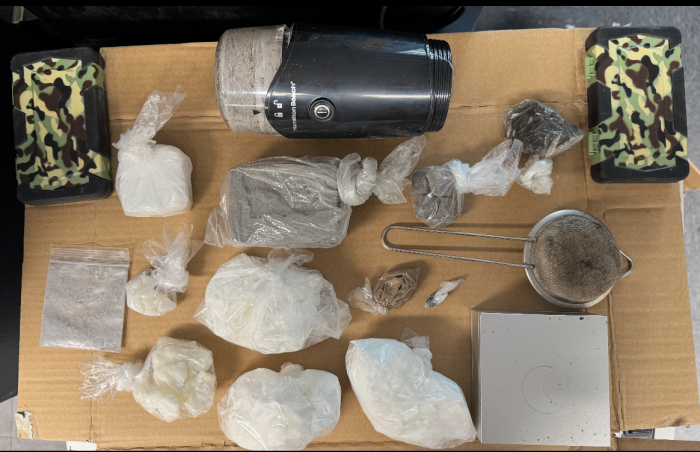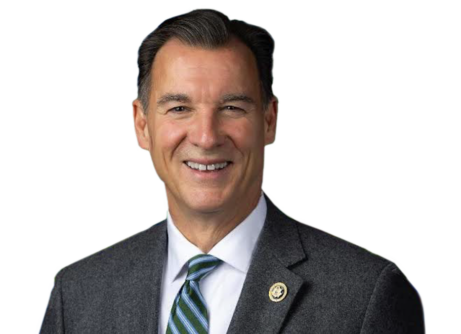The Trump administration has extended Temporary Protected Status (TPS) for over 500,000 undocumented Haitians living in the US.
The Department of Homeland Security (DHS) announced a Federal Register notice on Nov. 1 extending the validity of TPS-related documentation for beneficiaries under the TPS designations not only to Haiti but also to El Salvador, Honduras, Nepal, Nicaragua and Sudan through Jan. 4, 2021.
The TPS designation to Haiti, El Salvador and Nicaragua was expected to expire on Jan. 4, 2020.
The designation to Honduras was expected to expire on Jan. 5, 2020 and Nepal on March 24, 2020.
DHS said the notice “automatically extends the validity of Employment Authorization Documents; Forms I-797, Notice of Action; and Forms I-94, Arrival/Departure Record – collectively TPS-related documentation.”
DHS said it was extending the TPS documentation to Haiti and the other countries in compliance with the preliminary injunctions of the US District Court for the Northern District of California in the cases of Ramos, et al. v. Nielsen, et al. and the US District Court for the Eastern District of New York in Saget, et. al., v. Trump, et. Al.
In addition, DHS said it was extending TPS to those countries in keeping with the order of the US District Court for the Northern District of California to stay proceedings in the case of Bhattarai v. Nielsen.
“If the government prevails in its challenge to the Ramos preliminary injunction, TPS for beneficiaries under Haiti’s designation may continue pursuant to the Saget preliminary injunction,” said DHS in a statement.
“However, should the government prevail in its challenges to both the Ramos preliminary injunction and the Saget preliminary injunction, the Secretary’s (DHS) determination to terminate TPS for Haiti will take effect no earlier than 120 days from the issuance of the later of the two appellate mandates to the District Court,” it added.
In early March, Caribbean American Congresswoman Yvette D. Clarke joined three of her congressional colleagues in introducing the Dream and Promise Act, also known as H.R. 6, in the US House of Representatives that would allow the US-raised immigrant youth known as “Dreamers” to earn lawful permanent residence and American citizenship.
Clarke, the daughter of Jamaican immigrants, said the legislation — which is co-authored by US House Speaker Nancy Pelosi, Lucille Roybal-Allard, another Democrat from California, and Nydia Velázquez, a New York Congressional Democrat — is the 116th Congress’s version of the Dream Act, a bill which has been introduced since 2001.
However, Clarke, representative for the 9th Congressional District in Brooklyn, said H.R. 6 includes protections and a path to citizenship not just for Dreamers but also for TPS for Haitians, among others, and Deferred Enforced Departure (DED) beneficiaries.
“We need comprehensive immigration reform that protects Dreamers, as well as TPS and DED beneficiaries,” Clarke said. “That’s why I am proud to be a co-lead on the Dream and Promise Act (HR 6).
“This bill will include a path to citizenship for Dreamers, as well as for people covered by Temporary Protected Status and Deferred Enforced Departure,” she added. “This bill builds upon the Dream Act, the American Promise Act, and the ASPIRE TPS Act, which I introduced last Congress.”
Clarke told Caribbean Life that the Dream and Promise Act allows Dreamers and individuals with TPS and DED to “contribute fully in the country they love and know to be their home by providing a pathway to citizenship.”
She said the Dream and Promise Act would grant Dreamers conditional permanent resident status for 10 years, and cancel removal proceedings. if they have been continuously physically present in the US for four years preceding the date of the enactment of the bill and were 17 years old or younger on the initial date of entry into the US.
Clarke also said the Act would, among other things, grant Dreamers conditional permanent resident status if they graduated from high school, obtained a General Equivalency Diploma (GED) or industry recognized credential, or were in a program assisting students in obtaining a high school diploma, GED or equivalent exam, or in an apprenticeship program.
In order to gain full lawful permanent resident (LPR) status, Clarke said Dreamers must acquire a degree from a US institution of higher education; or complete at least two years in good standing in a bachelor’s or higher degree program or in an area career and technical education program at a post-secondary level in the US.
For LPR, Clarke said Dreamers must also complete at least two years of military service, and if discharged, received an honorable discharge; or employed for periods of time totaling at least three years and at least 75 percent of the time with employment authorization.
The Caribbean American congresswoman said the bill also includes a number of provisions for Dreamers, including repealing Section 505 of the Illegal Immigration Reform and Immigrant Responsibility Act of 1996, which penalizes states that grant in-state tuition to undocumented students on the basis of residency.
She said the bill also allows Dreamers to access federal financial aid; ensure that individuals with conditional permanent resident status are able to access professional, commercial and business licenses; and permit eligible Dreamers, deported from the United States by the Trump Administration, to apply for relief from abroad.
Clarke said the Dream and Promise Act, which passed the US House of Representatives, will provide 2.5 million TPS beneficiaries, among others, a pathway to citizenship and the opportunity for legal residency.
“We must urge our colleagues in the Senate to also pass this historic legislation,” she urged.





















